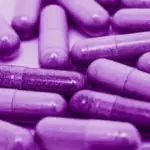
Acid Reflux
Alternatives to PPIs : Spare Your Body From Further Damage
Jun 28, 2017Acid reflux is a highly prevalent health condition in the United States. The fact that it affects around half the American population attests to the fact that it is a result of bad dietary and lifestyle choices.
Americans spend billions of dollars on acid blocking medications every year. Proton-pump inhibitors, or PPIs, are prescribed to millions of individuals every year. But we know, PPIs actually do more harm than good. They provide symptomatic relief alright, but they gradually make the condition worse. More and more people are looking at complementary and alternative medicine (CAM) for alternatives to proton pump inhibitors for GERD. Let’s learn more about natural remedies for GERD.
Try Natural Alternatives To PPIs for Instant Relief
The most prominent symptom of acid reflux, or GERD (gastroesophageal reflux disease), is heartburn. This is a result of acidic contents of the stomach sloshing back into the esophagus and irritating its sensitive lining. The first thing on your mind would be to stop this burning sensation. The most common thing to do would be to take an “anti-acid” to neutralize the acid that is causing all the trouble and pain. But we know that stomach acid ain’t bad. And yet, you cannot think of any long-term treatment strategies if you cannot get rid of the heartburn right then.
Natural treatment for Heartburn Relief
Aloe juice
Aloe is known for its activity of soothing burns and is often used on skin to calm sunburns and rashes. The same action can also help soothe the burning sensation inside your esophagus. Aloe has potent anti-inflammatory activity and when your esophagus is inflamed and irritated, a glass of aloe juice can calm down the irritation and burning. Drink half a glass of aloe juice (cool or at room temperature) 5-10 minutes before meals to avoid heartburn.
Chewing gum
There is research to prove that people with chronic heartburn experience relief from symptoms when they chew a piece of sugar-free gum for around half an hour. Chewing gum stimulates secretion of a large amount of saliva that dilutes the gut acid thereby giving relief from heartburn. (Did you know that Japanese truck drivers chew gum when they are driving at night to avoid falling asleep while at the wheel? It might also help with their acid reflux!)
Banana or apple
Bananas and apples have natural antacid activity. Eat a well-ripened banana every day to relieve heartburn. Alternatively, you can eat an apple every day prior to bedtime to prevent discomfort at night (when heartburn is usually at its worst).
Mustard
While it tastes great in sandwiches and burgers, a spoonful of mustard when eaten straight from the bottle is a great natural remedy for acid reflux. Mustard has alkaline properties and it also contains a weak acid (acetic acid from the vinegar). Mustard helps neutralize the acid and provides instant relief from heartburn.
Almonds
Eating 3-4 almonds after every meal can help prevent bouts of acid reflux. You can also drink a tablespoon of almond milk after every meal to prevent heartburn.
Chamomile tea
Drinking chamomile tea half an hour before going to bed helps reduce the inflammation in the stomach and eases acid reflux symptoms. Chamomile is also a great stress buster and works wonderfully in stress-related acid reflux.
Baking soda
Baking soda is technically sodium bicarbonate, an alkaline substance. It neutralizes stomach acid and provides instant relief from your heartburn. ½ to 1 teaspoon of baking soda dissolved in a glass of water can help in relieving heartburn. A word of caution, though: Do not use this remedy for more than a week at a stretch. It may trigger side effects like swelling and nausea.
There are other great home remedies including ginger, apple cider vinegar, and raft-forming alginates in relieving symptoms of GERD.
Lifestyle Modifications To Help Reverse GERD
Reversing acid reflux is possible. It will require treating the problem at its root. An imbalance in our gut microbiome is the source of this problem. An overgrowth of the wrong bacterial populations (especially H. pylori) causes fermentation, rather than efficient digestion, of food. This causes excessive gas production that increases pressure on the lower esophageal sphincter forcing it to open the wrong way and spilling acidic contents of the stomach into the esophagus. Lifestyle modifications will include correcting the imbalance of the gut microflora, eating the correct diet and decreasing pressure on, and strengthening, the LES.
Watch your diet
A diet full of processed carbs and refined sugars is a sure way to imbalance the gut microflora. A high carbohydrate diet promotes the overgrowth of H. pylori, the root cause of acid reflux. Include fresh greens and “real foods” in your diet to support a healthy bacterial population that will not only keep acid reflux at bay but will play a vital role in the overall health and well-being of your body.
Restore beneficial bacteria
Our gut is an awe-inspiring example of biological synergism. It is home to trillions of bacteria, the majority of which help us in one way or the other. When there is overgrowth of bad bacteria, it can cause a wide variety of health problems, including GERD. A high-quality probiotic supplement will help correct the microfloral imbalance. It will also help beneficial bacteria outgrow H. pylori by a phenomenon called competitive inhibition.
Balance your acid
As we’ve already seen, acid reflux is often the result of less acid. Concentrated hydrochloric acid actually signals the lower esophageal sphincter to shut tight. This is because concentrated HCl will be secreted only when there is food in the stomach and so the sphincter has to close properly to avoid acidic contents to reflux back into the esophagus. Now, when there is less acid or weak acid, the LES does not get proper signaling telling it to shut tight. This can also lead to acid reflux. An HCl supplement that also contains a digestive enzyme like pepsin can help treat GERD. Bitters can also stimulate acid production and can be used to relieve GERD.
Quit smoking and alcohol
Tobacco and alcohol weaken your lower esophageal sphincter, making it easy for it to open the wrong way. Quitting smoking and drinking will not only help your GERD, it will also reduce your risks of other chronic diseases.
Lose weight
Being overweight, especially around the waist, puts extra pressure on the LES. This makes your GERD worse. Losing weight has many positive outcomes and reduces various health risks.
Don’t wear tight-fitting clothes
Wearing tight-fitting clothes, especially around the waist, can put pressure on the stomach. This subsequently puts pressure on the LES and makes your GERD bad.
Elevate your head while sleeping
Elevating your head while sleeping will ensure that your stomach contents remain downwards and do not flow back through the LES. You can place wooden or cement blocks below the bed on the side where you rest your head to raise the bed and achieve this elevation.
Follow healthy eating habits
Practicing healthy eating habits like eating peacefully, chewing well and slowly, eating 5-7 small meals throughout the day to avoid overfilling your stomach at once, drinking water between meals rather than during meals, etc. will help the stomach to produce acid gradually to digest the food properly. This will not cause over-production of acid.
Alternative Therapies for GERD
Acupuncture
Acupuncture, the Chinese art and science of pricking small needles at various sites on the body has been around for more than 4000 years. It is said to stimulate healing by balancing the flow of energy. In a clinical trial to observe the curative effect of acupuncture on GERD symptoms, researchers found that acupuncture significantly decreased GERD symptoms. Another study found beneficial effects of acupuncture on decreasing stomach acids and the regulation of LES.
Hypnotherapy
Hypnotherapy, or clinical hypnosis, helps an individual attain a highly concentrated and focused mental state. A study assessed the efficacy of hypnosis on GERD and found that many participants found a reduction in symptoms. The initial positive results have prompted more studies on this aspect.
Yoga
Breathing exercises as taught in the ancient Indian art of Yoga, called Pranayama, can be highly beneficial in controlling GERD. Pranayamas like Kapalbhati and Agnisar Kriya were shown to help patients with severe GERD that wasn’t controllable through PPI use alone. It’s always good to start your yoga sessions with a trained instructor.
Correcting Imbalance in GERD
Treating or reversing chronic diseases is often all about correcting the imbalance that we have created thanks to our current lifestyles. The treatment strategies for GERD bear testament to this perspective of looking at all chronic diseases as a result of an imbalance in this awesome and amazing body of ours.
An abnormal amount of stress is also a trigger for chronic diseases and we all know what stress could do to your GERD. It makes it even worse. Relaxation techniques like music therapy, sound sleep, deep breathing, massage, meditation are all vital for a calm and peaceful state of mind, can make healing easy and are great natural remedies for GERD. Learning how to manage stress in these times is half the battle won against chronic diseases.
Elimination of acid reflux can be done through a safe, natural way without harming your body further with medications like PPIs that have side effects that could lead to worse conditions than what they were meant to protect us from. If you use these natural therapies to heal your body, the body will thank you and repay you with years of good health and wellness.
References:
1. https://www.ncbi.nlm.nih.gov/pubmed/16246942
2. https://www.ncbi.nlm.nih.gov/pubmed/27323443
3. https://www.ncbi.nlm.nih.gov/pubmed/24501947
4. https://www.ncbi.nlm.nih.gov/pmc/articles/PMC4482465/
5. https://www.ncbi.nlm.nih.gov/pmc/articles/PMC3734640/







